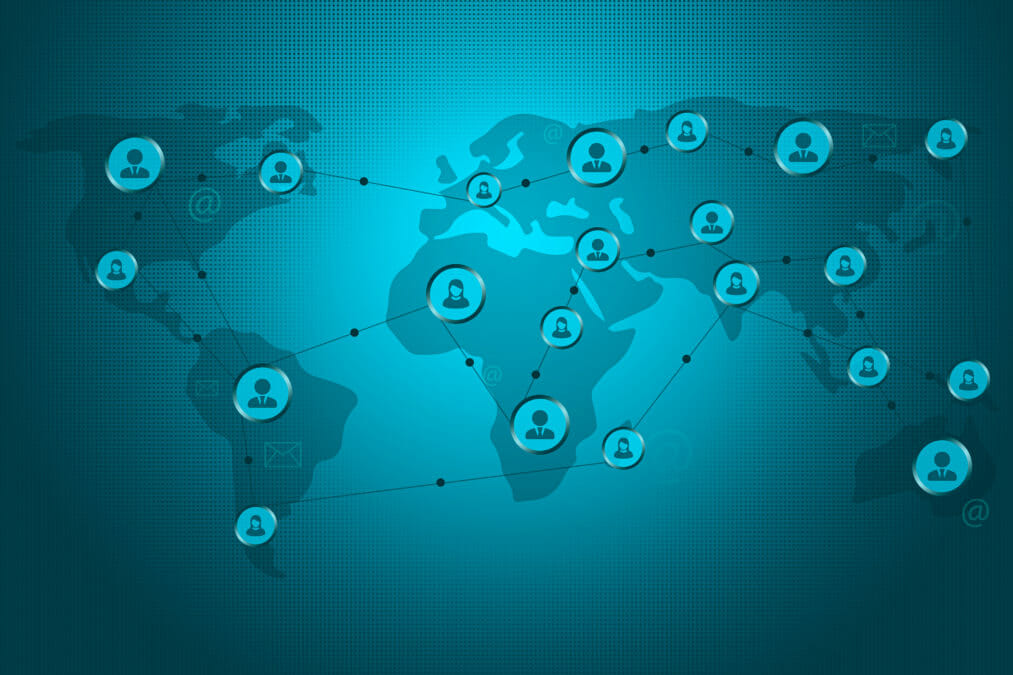Remote working might just have found its time to shine. With the COVID-19 pandemic, businesses and schools around the globe have instituted work-from-home arrangements to comply with social distancing policies. Some countries have even enforced home quarantines or lockdowns, which are now resulting in a spike in the use of teleconferencing and cloud-based productivity applications, which means a need for organisational governance.
Digital collaboration is certainly not a new concept. With the rise of popular platforms from established enterprise-focused companies like Microsoft and Google, the concept of the workplace has been drastically redefined. The rapid spread of the Coronavirus has resulted in an upsurge in use–some platforms have reported a 500% increase in usage. Such applications may actually be the hero apps of our age, as these enable businesses to carry on with many of their processes, at least for those tasks that can be done remotely.
The best conferencing tech for working from home
Most collaborative apps will include messaging, document-sharing, video-conferencing, and calendaring solutions. However, for businesses that require collaboration on more sensitive documents, such as those used in contract reviews, due diligence, compliance reports, and the like, there needs to be more effective purpose-built solutions that ensure safety, security, and efficient collaboration without the risk of data being leaked or misused.
For this purpose, solutions that offer higher levels of security through limited access, audit trails, and copy prevention will be more effective in enabling digitized organisational collaboration. ContractZen, for example, provides a metadata-driven content management platform for contract handling, organisational governance, meeting management, finance, and administration. This includes a secure virtual dataroom, contract management portal, company register, and support for e-signatures.
Increasingly globalised nature of business and partnerships
COVID-19 may have put the highlight on the intricacies of remote working, but globalisation has already established a big demand for collaboration and partnerships across businesses and enterprises on a global scale. In 2019, an average of 54% of employees worked remotely at least 2.5 days in the week.
However, businesses are increasingly under pressure to expand their markets and userbase amid globalisation. More than 50% of small businesses will fail in their first four years, and 50% of Fortune 500 companies have disappeared in the past 15 years.
This means that both small businesses and large enterprises will need to expand their horizons–a majority of companies today actually have international dealings, which can include suppliers or customers.
Enhancing collaboration through data safety and security
For enterprises with such global relations, being able to collaborate with clients and vendors online will prove itself essential in operations struggling with COVID-19’s repercussions. This emphasises the importance of having the ability to enter into contracts through digital means. Collaboration through digitised organisational governance platforms will enable these companies to easily review contracts, e-sign documents, and enter into partnerships or other agreements.
This also includes investor relations–dealing with potential investors or portfolio companies will require that due diligence be done. With the sensitive nature of documents such as financial reports, confidential intellectual property, or privileged communications, these require extra security in terms of granting access to the data, auditing which documents are read or revised, and keeping all communications stored within the secure platform.
Addressing fragmented data and documentation
Going digital is the first step toward enabling more efficient collaboration across wide geographies. However, getting your documents, data, and messages on the cloud is not enough if these are done on disparate or fragmented platforms. In addition, even if data were to be stored in a single solution, it tends to be fragmented in terms of how users access it, and how data is stored and organised.
Mass data fragmentation: the main cause of ‘bad data’ and how to take control of it
In contrast, a purpose-built platform will ensure that all data, communication, and documentation meant for purposes of organisational governance will be accessible from a single platform. For instance, documents pertinent to a contract review, executive discussions, and even contracts signed through e-signatures, can be managed through a platform like ContractZen–something that is not easily achievable on solutions that focus solely on document collaboration.
Ensuring compliance through transparency
The same goes when dealing with governance, risk, and compliance procedures. Regulators will often require access to reports and documents in compliance with regulatory frameworks. Providing transparency through secure access ensures that data is available to regulators and that such data will not be illegally copied or taken out of the system.
This greatly makes regulatory compliance more efficient, which also enhances a company’s trust and reputation within its market.
The takeaway
With secure and feature-rich digital tools, global businesses can operate with greater efficiency and achieve goals with ease. They can untangle management complexities as they have easier access to information. They can communicate and collaborate without geographical barriers and with minimal bureaucratic inefficiencies. Additionally, businesses can ensure data security, minimise disruptions, and work in a more organised fashion even when facing unexpected challenges like the COVID19 pandemic.
A well-built digitised governance system is an essential factor in enabling remote work arrangements and continuing transactions with other businesses. This means business as usual–life goes on even amidst pandemics and globalisation challenges.








